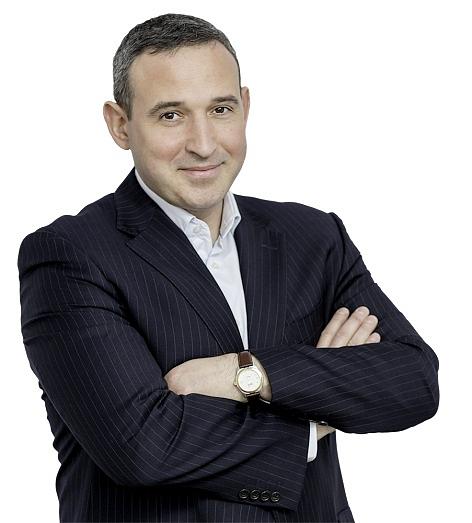What has Romania learned from the crisis? A talk with the man who restructured RTC Proffice Experience



The crisis has helped many businesses in Romania reinvent themselves after they saw the demand they had taken for granted was lost. They had to go and find customers, and win them in new ways. “Plan, prospect and work harder for the same results and less money. That means better market prospecting, aggressive selling, find new routes to the market,” says Gabriel Muresanu, the man who helped local stationery company RTC Proffice Experience recover after the crisis.
In an interview for Romania-Insider.com, Muresanu, now managing partner at Awareness Power Consulting, talked about the lessons Romania learned from the crisis, and about the difference in approach between Romanian and foreign companies active locally.
Shaken by the economic crisis and by the consequent drop in demand, local business owners took a closer look at their business figures, to understand where profitability came from. This also helped them decide what to do - and what not to do in business.
Business owners in Romania realized that they need to become more competitive on the market and that speed and quality make a difference for customers. They also started to focus more on discipline and leadership.
“Overall, the crisis was a wake-up call for all the businesses in Romania in terms of their efficiency and their cost control. A wave of humbleness and frugality hit all the management teams during this period, as well as all the consumers. Because of it, the consumption rate is still low; with a small increasing trend, but still low. Due to the lower consumption in general, all B2B businesses are still struggling as companies make purchases in a more controlled manner,” Gabriel Muresanu told Romania-insider.com.
The harsh period has taught consumers to start looking for the best prices before buying something, which has led to an increase in online shopping, and to a rise on the courier market. On the other hand, the retail market is still suffering due to this transition.
Training companies were also affected. ”Due to budget cuts, the training market is also suffering as there is too much supply versus demand. Companies did not invest too much money in staff development in the last five years, compared to the years before the crisis. This has started to change the training companies’ way of competing and the structure of their product portfolio. They began to move from out-of-the-shelf programs towards customized programs and business consultancy.”
Elsewhere, some companies try to offset the decreasing sales volume by lowering prices – which is one of the mistakes local companies made during the crisis, Muresanu believes.
“The pressure from sales people is big towards the sales management team, in order to be more competitive and to reach their targets. Instead of deciding what customers to take and what customers are not worth taking, they want them all, even though they are not profitable customers,” he says.
Meanwhile, companies in Romania fail to invest enough in their culture, in values and principles, and in their people. “A second mistake is that sometimes they don’t build their business based on the real value of their product or services but rather on network relationships and hidden incentives given to the decision makers. This approach is not healthy on a long term as the business standards and the power of law are increasing in this country."
Foreign vs Romanian approach
Foreign and Romanian business owners had different ways of dealing with challenges during the crisis.
Foreign business owners tend to use business consultants, invest in new methods and systems. On the other hand, local owners realized during the crisis that they needed to change and adapt. They’ve started to invest in IT systems for a better control and a more efficient business, and to explore new customer segments. Local business owners, although still reluctant, started to be more open to new ideas.
What about a new wave of the economic crisis? Muresanu says this could be like “a replica after an earthquake”- and not many companies would resist.
While building his consultancy business at times of crisis, Muresanu too encountered challenges. The main one was gaining the customers’ trust, and making them pay for services. One can do that by building an attractive business model. “When you commit to delivering results and you have good credentials, the customers’ doors open, especially during the crisis,” he says.
The RTC Proffice Experience turnaround – how did it work?
Muresanu was the CEO of local stationery company RTC Proffice Experience for almost three years, between 2012 and 2015. During this period, he helped the company grow after five consecutive years of decline. He and his team managed to grow the company from EUR 24 million in 2012 to EUR 27.5 million in 2014. “A 5% growth in 2013 and a 15% growth in 2014, with a 30% increase in the number of customers in 2013, in a stagnant industry,” Muresanu sums it up.
Some of the main ingredients that helped RTC recover were a strong management team, a reinvented business model and more motivated people.
Bringing a noble cause to the business also helped, Muresanu says. “An important role in the RTC reconstruction was the CSR programme “Change a life,” done together with SOS Satele Copiilor. This program did unite the RTC team around a noble purpose that gave them a new meaning for the day to day work, gave them additional strength and energy to overcome the daily job difficulties.”
Irina Popescu, irina.popescu@romania-insider.com